African cooking gets the Michelin treatment
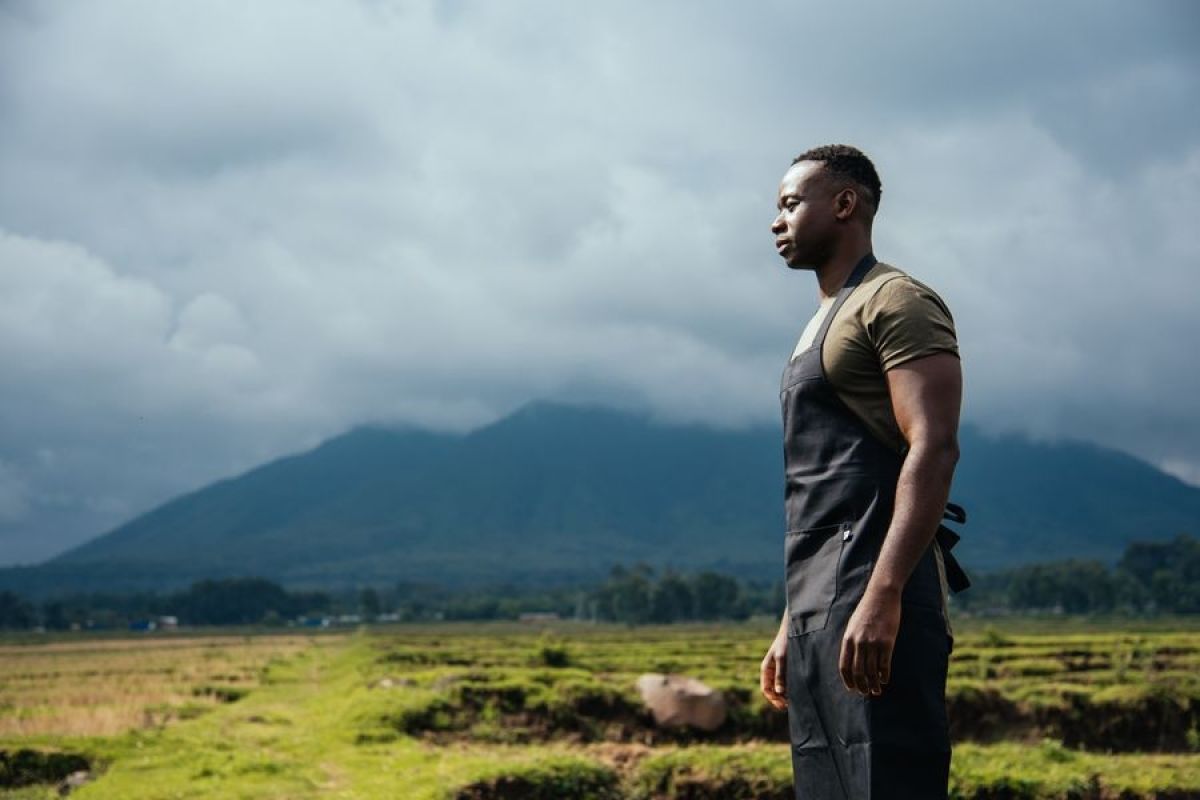
African cuisine has always been an important part of 30-year-old Dieuveil Malonga’s identity.
As a young boy, his grandmother owned a popular street food restaurant just outside of Brazzaville, the sultry riverside capital of the Republic of the Congo, where Malonga spent what he describes as a 'very happy' childhood.
'Through her, from very early on, I was surrounded by a culture of traditional food. My grandmother passed her love for this on to me,' he said.
But when Malonga lost both of his parents in quick succession (his mother to terminal illness and his father to political violence), he was sent to Germany to live with a pastor’s family at the age of just 13.
In that cold, foreign land with its bland and unfamiliar cuisine, he soon began to feel that something integral was 'missing' from his new life.
Even when Malonga subsequently joined an elite German gastronomic school in the town of Muenster, this feeling continued to gnaw at him.
'I gradually realised that it was that particular food culture I had grown up around that I was missing,' he said.
'I think the foundation of everything I have become today started there.'
When he went back to Congo during school holidays, Malonga would return to Germany with exotic chillies and other traditional Congolese herbs and ingredients.
He began to experiment with these in the cooking school’s kitchens as he gradually honed a culinary style that combined African and European flavours and would eventually help him to make his name.
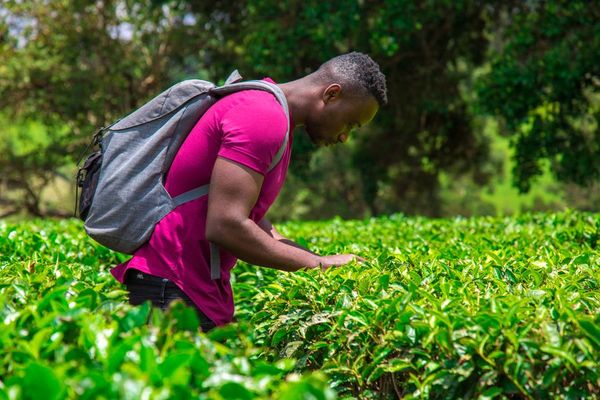
Above: Chef Dieuveil Malonga.
After graduating, Malonga subsequently went on to work in a series of Michelin-starred restaurants in Germany and then France.
He also briefly starred on French reality TV show TopChef in 2014, where for the first time he could share his personal brand of Afro-fusion cooking with a wider audience.
Malonga’s career continued to blossom in Europe and in 2018 he was selected as one of 10 finalists for the Basque Culinary World Prize, one of the most prestigious awards in the culinary universe.
Yet all the while, the young chef remained intent on deepening his knowledge of the rich culinary heritage of the African continent.
With this always in mind, he had travelled to 38 African countries by the time he reached his mid-20s (that number has since grown to 50), collecting a range of recipes and ingredients along the way.
The vast majority of these were garnered from grandmothers in small villages rather than professional chefs in urban kitchens.
'The villages are where you usually find the real local cuisine,' Malonga said. 'And the grandmothers are the ones who keep all the best secrets in this regard.'
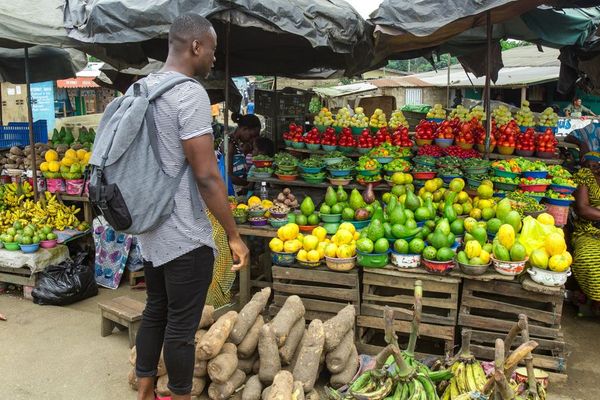
Above: Malonga shopping for fresh ingredients.
The ultimate goal of all of this was to combine his increasingly diverse range of influences and experiences and open a fine dining Afro-fusion restaurant somewhere in Africa.
Malonga eventually settled on Rwanda’s booming capital Kigali, where he said he felt 'instantly at home.'
Meza Malonga, which means ‘Malonga’s Table’ in Kiswahili, opened its doors in the city’s increasingly hip Remera district in March 2020, just days before the country implemented strict lockdown measures in response to the Covid pandemic.
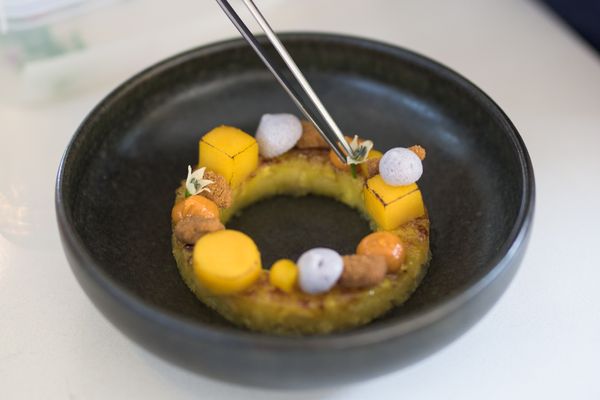
Gastronomical: Meza Malonga brings haute cuisine cooking techniques to Kigali.
'You could say it wasn’t the best timing,' Malonga said with a wry laugh, 'and it wasn’t easy financially, but we took that time to train our team and create the menus and we all learnt a lot.'
'Even when we could finally open for business, there were still no tourists coming to Rwanda, so the majority of our clients have been Rwandese,' he added.
'But since the beginning we have been constantly full. Still today, you have to book at least a month in advance to get a table.'
The restaurant’s eclectic seasonal menus, which Malonga said represent a true 'meeting of cultures', include dishes such as plantain ravioli with wild mountain mushroom broth, cassava powdered shrimp and coffee espuma (foam) with peanut crumble.
Meanwhile, containers holding delicacies such as tiny chilli peppers from the Ivory Coast, pebe nuts from Cameroon and dried mbinzo caterpillars from the Congo fill an entire wall of the establishment.
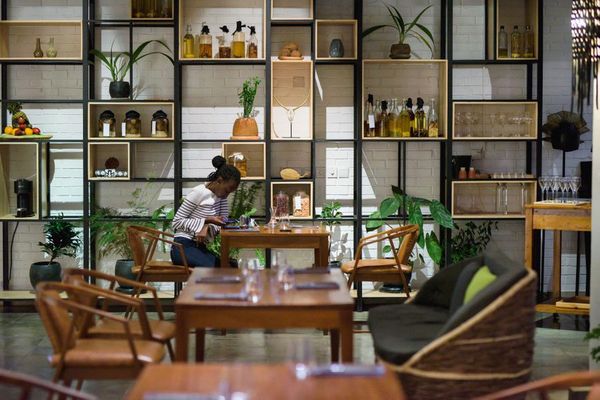
Above: Traditional ingredients fill Meza Malonga's walls.
'I like to think of Meza Malonga as more of a laboratory than just a restaurant,' Malonga said. 'It is a place where we do scientific work with products that we find all around Africa, with a lot of innovation and creativity involved.'
It’s also a place that Malonga believes should serve broader social and symbolic functions.
The restaurant is an incubator for training young Rwandans in the art of professional cooking, giving them a bankable vocation in a country with high youth unemployment.
Malonga also hopes that his recipes can help change persisting and longstanding 'bad stereotypes' about African food.
'Africa is the garden of the world,' he said.
'We need to do more to valorise what we have here, and to invite the world to further discover our incredible culinary diversity.'
Malonga points to Ikoyi restaurant in London and Mosuke in Paris, both of which have been awarded Michelin stars for their African-influenced fusion cuisine within the past two years, as examples that a significant change is already taking place in this regard.
But in opening Meza Malonga on the African continent rather than joining the growing crop of young African chefs making it in Europe, Malonga hopes to not only foster new links between the two continents, but also to 'bring pleasure to ourselves on our own turf, where unfortunately we sometimes still undervalue our own food.'
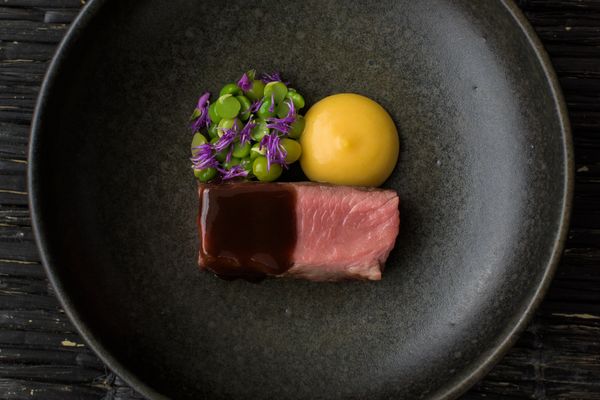
Above: African flavours get the haute cuisine treatment at Meza Malonga in Kigali.
This dual emphasis has underpinned another of Malonga’s successful ventures, a website called Chefs in Africa.
Launched in 2016, the site connects government institutions, training centres and businesses with professional chefs and young culinary students or apprentices looking for work experience.
It also facilitates contact between its members and hotel and restaurant industry agents and local producers.
To date, Chefs in Africa’s network has registered over 4,000 African chefs as members, 70 per cent of whom are based on the continent, and 30 per cent in the diaspora.
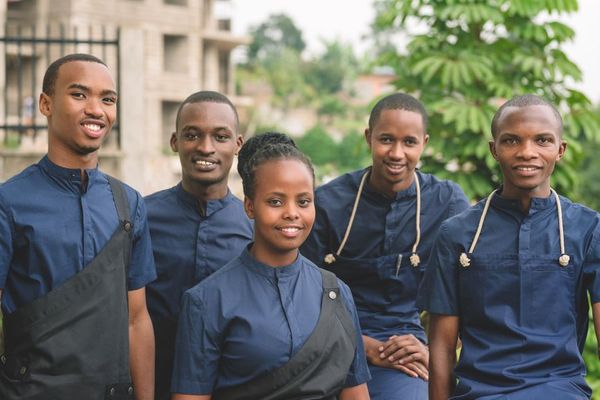
Above: The team of young chefs employed at Meza Malonga.
In December 2017, Malonga also co-created an African gastronomy MBA course as part of the Luxury Brand Management programme at the International Fashion Academy in Paris, the first of its kind in the world.
Not one to rest on his laurels, Malonga already has other projects in the pipeline that will seek to both further expand the pool of rising culinary stars in Africa and provide another exclusive African dining experience for discerning customers.
Next year, he will be opening a new restaurant and cooking school in Rwanda’s wild and mountainous Musanze region on the farm that currently provides much of the seasonal produce for Meza Malonga’s menus.
'We will train young people from local communities not only in gastronomy, but also in entrepreneurship, innovation and culture so they can become future ambassadors of the new African cuisine,' Malonga explained.
A couple of hours’ north from Kigali along winding roads, the new restaurant won’t be the easiest place to get to.
But taking the most straightforward route has never been a priority for Malonga.
'It takes time to make a real impact in any domain,' he said.
'But increasingly today, people will travel for good food. They don’t care about distance. If it’s good, they will come. When they eventually come here, they will see that Africa is the future.'
For more information about Meza Malonga, see www.mezamalonga.com.
- #cooking ,
- #food ,
- #kigali ,
- #restaurants ,
- #Rwanda



